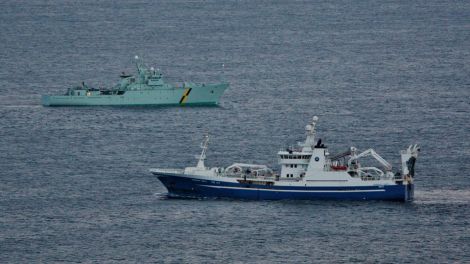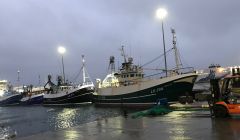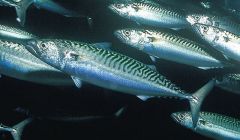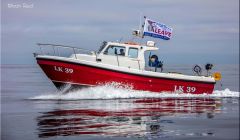Brexit / Fishing industry prepares for negotiating marathon ahead of Brexit
FOLLOWING the signing of fisheries framework agreements with Norway and the Faroe Islands, all eyes are now on the UK negotiating teams tasked with the job to strike advantageous deals on fishing entitlements and access to waters local communities have been hoping for ever since the Brexit vote in 2016.
With consent on total allowable catches (TAQs) on blue whiting and Atlanto-Scandian herring reached earlier in October the focus now shifts to the nitty-gritty of the UK’s future relationships with Norway, Faroe and the European Union.
In preparation for life beyond 2021 the UK has been given permission to act as an independent coastal state for the first time in 40 years, ahead of the end of the transition period on 31 December.
Bilateral talks between the UK and Faroe as well as trilateral negotiations between Norway, the UK and the EU over shared stocks are all set to take place over the coming weeks.
The ongoing negotiations between the UK and the EU, and the question whether or not a trade deal will be reached at the last minute, will have an impact on a fluid situation.
Setting the scene, Simon Collins, executive officer at the Shetland Fishermen’s Association (SFA), told Shetland News: “Once we have some clarity on the Brexit talks, we will be able to set the dates for trilateral negotiations with Norway and the EU, and then there will be three bilaterals in early December and the background to all that is a mixed bag on science.”
No dates have been set yet, but there will be some considerable interest in the forthcoming talks with neighbouring Faroe after years of complaints over the amount of mackerel Faroese vessels have been taking from UK waters, with Faroese fishing boats working within Shetland’s own 12-mile limit a particularly sore point.
Become a member of Shetland News
Collins said the UK is “absolutely determined” to reduce the Faroese access to mackerel and added that he did not expect a complete shutdown as “there are deals to be done particularly over access to demersal stocks in Faroese waters”.
An annual report on the “utilisation of the EU-Faroese bilateral access agreement” by SeaFish, a government agency supporting the industry, calculates that in 2019 the access arrangement was worth £35 million to the Faroese and just £700,000 to EU vessels.
Collins said the EU never had any real interest in this particular deal, very much to the detriment of the Scottish industry, but this is something likely to change as the UK will conduct its own negotiations.
Meanwhile, trilateral talks between the UK, Norway and the EU over shared stocks in the North Sea have been pencilled in for the end of November.
This will be followed by a set of three bilateral negotiations (UK – Norway, Norway – EU, and UK-EU) over stocks shared by just two partners including swabbing arrangements and access rules between individual countries.
A “mixed bag” of recommendations for next year’s quotas will add further challenge to all of that.
Scientists from ICES [the International Council for the Exploration of the Seas] have advised caution on cod, a massive rise in haddock and a cut in the saithe quota, all adding to the headache for local fishermen.
Collins described the recommended increase in the haddock quota of 66 per cent as “unrealistic” and as something fishermen do not want, while a further cut on the cod quota would be devastating, particularly since cod is abundant in the Northern North Sea and can hardly be avoided to be caught in a mixed fishery.
The EU discard ban meanwhile will continue to be in force until the UK and Scotland are able to put an alternative policy in place.
Collins said “the guys don’t want a 66 per cent increase in haddock” and called for a more modest increase, something that could be built on in future years.
And pointing to recent swings in recommendations for mackerel quotas (down 60 per cent from 2018 to 2019, followed by an almost 200 per cent increase from 2019 to 2020), he said the huge swings did not give stability to fishing businesses and rather said “something about the modelling rather than the stocks”.
Collins, together with his colleagues from the Scottish Fishermen’s Federation as well as its UK counterparts, has been discussing objectives and tactics with officials at the UK and Scottish governments for the last four years, ever since the UK voted to leave the European Union.
“I am confident that our priorities are pretty much the same,” Collins said, adding that what comes out of the discussions is not a matter for the UK but for both sides in the negotiations, but he is assured that the industry and government officials “are pretty much working towards the same direction”.
Become a member of Shetland News
Shetland News is asking its many readers to consider paying for membership to get additional features and services: -
- Remove non-local ads;
- Bookmark posts to read later;
- Exclusive curated weekly newsletter;
- Hide membership messages;
- Comments open for discussion.
If you appreciate what we do and feel strongly about impartial local journalism, then please become a member of Shetland News by either making a single payment, or setting up a monthly, quarterly or yearly subscription.













































































